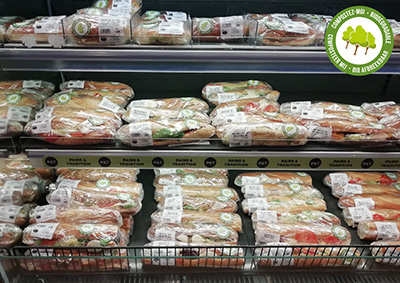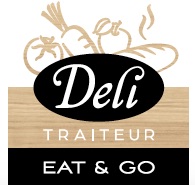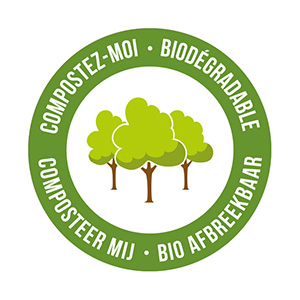Delitraiter is intensifying its ecologically responsible approach thanks to a new generation of packaging.
The Belgian ready-made specialist innovates with etp (ecologically transparent paper 100% compostable) for the packaging of its sandwiches and pla (organic plastic, compostable and renewable) for its salads.
The environmentally friendly "road map"
The fans of the famous cardboard box will have to make a reason: from today, Delitraiteur's 40 sales outlets abandon this packaging and replace it with an exclusive innovation on the Belgian market: ETP or transparent paper ecological.
Produced in France, this paper from sustainably managed forests has many advantages: 100% compostable, it allows among other things to reduce the size and weight of sandwich packaging, which will increase from 30 tons per year to 2 tons per year.
Easily identifiable thanks to its sticker.
The "sheet of paper" also considerably reduces the space occupied by the packaging in the refrigerator (or in the bin after consumption) while providing consumers with greater ease of transport and a more hermetic closure.
 Bio-sourced cardboard and plastic for salads Bio-sourced cardboard and plastic for salads
At the same time, Delitraiteur has just replaced its plastic salad boxes with cardboard boxes and their PLA cover.
PLA is a bio-sourced plastic based on corn starch, potato, beet or vegetable compost.
PLA packaging is compostable, renewable, low carbon.
An approach of progress focused on three axes
For Delitraiteur, these innovations are part of a process of ecological progress
"Go to Green", which has been underway for several years and is structured around three main themes:
1 Decrease the size and weight of packaging
2 Supply as much as possible with renewable materials and contribute to reducing the use of fossil fuels.
3 Ensure an optimal end of life for packaging (prefer composting)
Best for the planet AND for the customer
For Alexandre Terlinden, CEO of Delitraiteur, the ecological approach initiated by Delitraiteur is part of a conscientious approach, resolutely based on the long term:
"We are certainly not a perfect sign in this area, but Delitraiteur works every day to change and reduce its impact on the planet!
As a fast-food specialist, we are progressing step by step, constantly striving to improve our ecological footprint while maximizing the comfort of our customers and the flavor of our products.
Every success in this field is a step forward.
We look forward to every progress while thinking about the next one. "
Among the preferred materials for accelerating the transition, in addition to ETP paper and PLA (corn starch), others are also the subject of very regular studies and tests:
• FSC or PEFC certified paper / cardboard / wood, as light as possible
• Recycled and recyclable plastic
• Other eco-friendly materials: bamboo, sugar cane, palm tree, etc.
Finally, the Delitraiteur brand gives maximum priority to short circuits and collaborations with (small) producers and local suppliers.
This approach is fully in line with the strategy of progress and respect for the environment defined through its "Go to Green" program.

About Delitraiteur
Created in 1990, Delitraiteur, part of the Louis Delhaize Group, is today the Belgian fast-food specialist with 39 points of sale throughout Belgium and 1 in the Grand Duchy of Luxembourg.
Delitraiteur is positioned as the specialist of the "meal solution" offering a wide range of gourmet and quality prepared dishes.
The brand highlights the pleasure and the pleasure of shopping in a soothing and attractive space at a time.
The Delitraiteur are open every day of the year from 7:30 to 22h. In 2018, Delitraiteur launched Eat & Go, a totally innovative concept and the very first Belgian "Food Court" which has since offered commuters breakfasts, snacks, drinks or meals that can be consumed easily on the spot, on the road, at work or school.
At the end of October 2019, Delitraiteur won thanks to its Eat & Go concept the third place of the prestigious Mercure prize.
Delitraiteur achieved a global annual turnover of 73.4 million euros at the end of 2018.
|

 Bio-sourced cardboard and plastic for salads
Bio-sourced cardboard and plastic for salads
